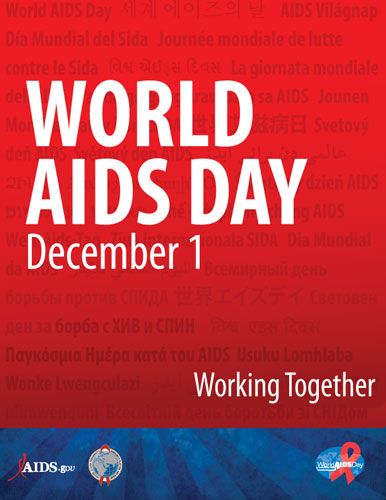Remembering the Human Faces on World AIDS Day

Year after year on December 1, World AIDS Day, news coverage of the HIV/AIDS pandemic has often been expressed in numbers. Thirty-four million people on this planet currently living with HIV. About 30 million deaths due to AIDS in the last 30 years. More than 2 million new HIV infections last year.
But even as this day provides an opportunity to reflect on the devastation of this dreadful virus, it is not these numbers that we think about at Episcopal Relief & Development.
Instead, we remember the grieving faces of women who have lost loved ones or been infected themselves, who we have met through our partner, the Zambian Anglican Council. We picture the determined faces of activists around the world who have stood in the face of massive stigmatization and discrimination to fight for the rights of those living with HIV/AIDS. And we recollect the faces of healthcare workers at the organization SiempreUnidos in Honduras, who care for people infected with the virus and work tirelessly to prevent more of their neighbors in the San Pedro Sula area from becoming infected.
Last month, in a speech at the National Institutes of Health, U.S. Secretary of State Hillary Clinton said that the world now has an historic opportunity “to change the course of this pandemic and usher in an AIDS-free generation.” Clinton’s optimistic tone stemmed from promising recent advances in HIV/AIDS research and programming. These include our increasing ability to scale up tools we’ve long had, like the ability to prevent transmission of HIV from a pregnant woman to her child; progress in developing effective vaccines and microbicides; and even early research on functional cures.
Although these advances are renewing hope that one day this pandemic will come to an end, we must take this day to rededicate ourselves to the tremendous amount of work and investment it will take. We also need to ensure that we do not lose focus on the human toll that HIV/AIDS continues to take. Episcopal Relief & Development programs aim to maintain this focus through educating young people and other vulnerable groups about HIV prevention, supporting orphans and vulnerable children with basic needs, and empowering those impacted by HIV/AIDS with opportunities such as micro business loans.
As Katharine Jefferts Schori, Presiding Bishop of the Episcopal Church, and Mark Hanson, Presiding Bishop of the Evangelical Lutheran Church in America, stated Monday, World AIDS Day is a reminder that we must “lift up the dignity and value of each person.” Let us take this day to remember the faces – the real people behind the numbers. May they inspire us to work together as a global community to end this HIV/AIDS pandemic.
———-
Saranga Jain is a Program Officer with Episcopal Relief & Development.


